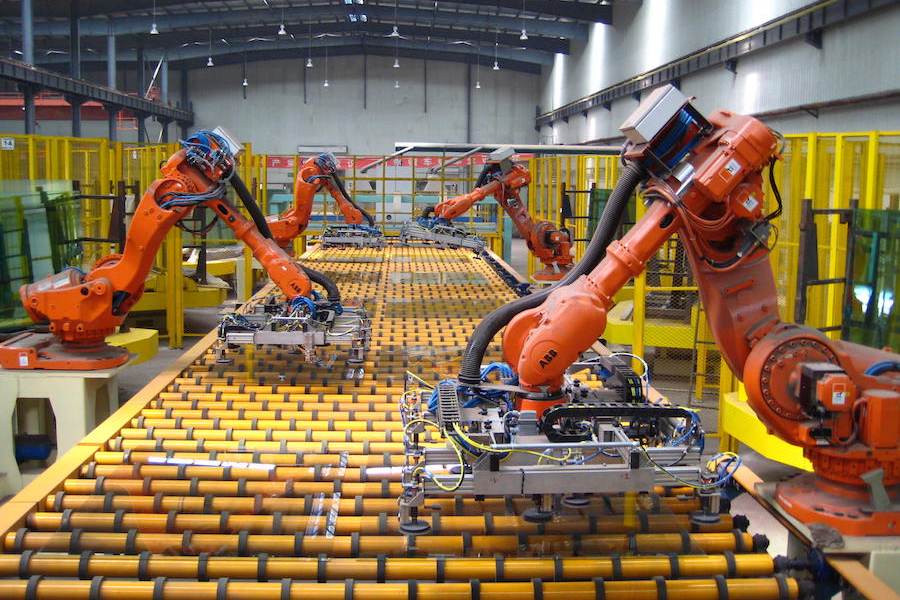Evidence thus far questions the assumption that robotics are eliminating jobs. INET Senior Vice President for Programs Rick McGahey says the UBI debate should focus on the long-term weakening of labor’s bargaining power
Welfare states in developed economies are being hit from all directions. Some argue they are too expensive; others see them as inadequate to new economic challenges. Their failure to address the needs of working class voters are blamed for the rise of what Mark Blyth calls the “neonationalism” seen in the Brexit vote, the Trump presidential victory, and the strength of nationalist candidates in France, Italy, and elsewhere.
Faced with economic disruption, especially in the labor market, some have advocated the adoption of a universal basic income (UBI) policy. Much of the current interest in UBI stems from a belief that technology is eliminating jobs more rapidly than new ones can be created, and that future job growth will be much lower. Erik Brynjolfsson, co-author of the widely read book The Second Machine Age, which forecasts significant displacement of human labor by robotics and artificial intelligence (AI), believes a UBI will eventually be necessary. Other authors, such as Martin Ford in his dystopian Rise of the Robots: Technology and the Threat of a Jobless Future supports a UBI, although initially at a “relatively low level.”
But, as I discuss in my recent paper “Universal Basic Income and the Welfare State”, labor economists from a variety of perspectives don’t believe the effect of robotics on employment are as dire as some imagine. (The paper is part of a forthcoming Columbia University Press volume on the welfare state, edited by Joseph Stiglitz.) That consensus among economists should give pause to those who believe that technological displacement justifies major disruptions in the welfare state.
The assumption that technology will be so disruptive as to justify discarding existing welfare state and other labor market institutions for a UBI should be treated with caution. Politically, that could result in an alliance with libertarian advocates of a UBI who want to eliminate the welfare state — unemployment insurance, housing, health care — and use the funds to provide cash grants to individuals, with the ultimate goal of reducing public spending.
Robotics and artificial intelligence may eventually cause major labor market disruptions, but that has not been the case thus far. Larry Katz and Alan Krueger found that people who work through the internet via online platforms like Uber represent only about 0.5 percent of the U.S. workforce — almost all of them Uber drivers, many of whom have another job. Contingent work arrangements — part-time, contracted, and temporary work agencies — are growing, and the new technology is being used in part to control worker schedules and expand global supply chains, weakening labor’s bargaining power but not resulting in wholesale elimination of jobs.
I argue that the UBI debate should focus on the strengthening of business’ economic power over labor over a more than three-decade period. Rather than a historically unique event, advanced technology may just be the latest factor impeding both labor’s ability to bargain, and overall macroeconomic performance, by contributing to weaker overall demand and growing inequality.






